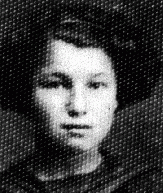<< Previous | Displaying results 1401-1450 of 6719 for "" | Next >>
-
Mojsze Kisielnicki
ID CardMojsze, his wife Raizel and their three children lived 35 miles east of Warsaw in the small, predominantly Jewish town of Kaluszyn. Mojsze had gone to Jewish schools and supported Zionist ideals. By the early 1930s, he owned a wholesale grocery store, a restaurant and a gas station, all of which were located on the heavily traveled main road. 1933-39: Mojsze is at the World's Fair in Paris with his sister, Ruchel. She immigrated here in the 1920s with her husband, who owns a successful tailor shop. When…
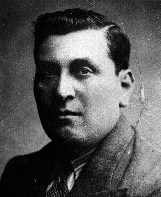
-
Raizel Kisielnicki
ID CardRaizel lived with her husband, Mojsze, and their three children in the small, predominantly Jewish town of Kaluszyn, which was 35 miles east of Warsaw. By the 1930s, Mojsze owned a grocery store, a restaurant, and a gas station, all of which were located together on the heavily traveled main road. The family lived in rooms in the same building as their business. 1933-39: Every day Raizel prepares the roast goose served in the family's restaurant. They have a bustling business, as many truck drivers stop…
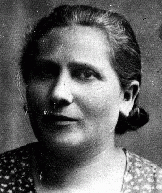
-
Chaie Sura Kisielnicki
ID CardChaie Sura was the youngest of three children born to Jewish parents living 35 miles east of Warsaw in the small, predominantly Jewish town of Kaluszyn. Her father owned a wholesale grocery store, a restaurant and a gas station, which were located together on the busy main road. The Kisielnicki family lived in rooms in the same building as their business. 1933-39: When Germany invaded Poland several days ago, Chaie Sura's father and brothers fled eastward towards the USSR with other Jewish men who were…
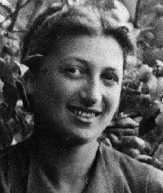
-
Abram Kisielnicki
ID CardThe oldest of three children, Abram was born to Jewish parents in the small, predominantly Jewish town of Kaluszyn, 35 miles east of Warsaw. Abram's father owned a wholesale grocery store, a restaurant and a gas station, all of which were located on the heavily traveled main road. Abram went to public elementary school and also received religious instruction. 1933-39: Abram was 21 when the Germans invaded Poland. Abram, his father, and his brother Majlech fled eastward towards the Soviet Union because…
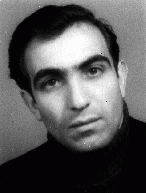
-
Majlech Kisielnicki
ID CardThe second of three children, Majlech was born to Jewish parents living 35 miles east of Warsaw in the small, predominantly Jewish town of Kaluszyn. Majlech's father owned a wholesale grocery store, a restaurant and a gas station, all of which were located on the heavily traveled main road. Majlech attended public elementary school and also received religious instruction. 1933-39: Majlech and his pals, Mindele, Sara and Adam loved to discuss politics. They'd heard the Polish propaganda claiming that…
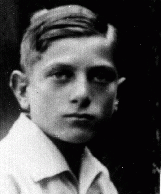
-
Idzia Pienknawiesz
ID CardIdzia was the older of two girls born to Jewish parents who lived 35 miles east of Warsaw in the small predominantly Jewish town of Kaluszyn. Idzia's father owned a liquor store and her mother was a housewife. Idzia was close friends with a group of Jewish teenagers who went to the same public school and spent much of their free time and vacations together. 1933-39: Normally, Idzia goes out with her friends on pleasant summer evenings. They like to stroll down the main street together and visit the sweets…
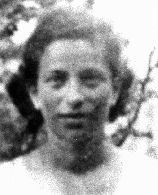
-
Ezra BenGershom
ID CardEzra was born to a Jewish family in the Bavarian city of Wurzburg. In the summer of 1929, his father, a third-generation rabbi, accepted a position as a district rabbi, guiding 12 congregations in Upper Silesia. In primary school, Ezra, who showed a keen interest in chemistry, was often harassed by his schoolmates for being Jewish. 1933-39: Because of his "Nordic" features, Ezra was able to frequent places where Jews couldn't go. In 1938, one year after he entered a Jewish secondary school in Berlin, the…
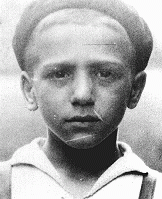
-
Frederic Bernard
ID CardFrederic was born to a Jewish family in Czernowitz (Chernovtsy). His father was head clerk in a lawyer's office and his mother was a pianist. Frederic's parents were active in Czernowitz's sizable Jewish community. In 1930 Frederic began medical studies at the German University in Prague, Czechoslovakia. 1933-39: Frederic left Prague in 1933. He went to France and then Italy to finish his studies and graduated in 1936. He wanted to leave Europe to escape Hitler and tried to do so by applying to the…
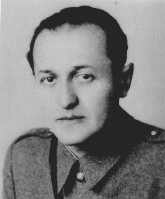
-
Johanna Falkenstein Heumann
ID CardThe oldest of five children, Johanna was born to Jewish parents living in a small town near Cologne. Her father owned a cigar factory. After Johanna graduated from high school, she worked in a bank in Cologne. At 22 she married Carl Heumann and the couple settled in the village of Hellenthal near the Belgian border. There they owned a general store. The couple had two daughters, Margot and Lore. 1933-39: A year ago Johanna's family moved to nearby Bielefeld, and she enrolled Margot and Lore in the city's…
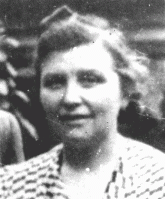
-
Nina Szuster
ID CardNina was born to a Jewish family in the Polish town of Rokitnoye. Her father built ovens. Nina's family was very diverse: her father was an Orthodox Jew, her brother was a militant Zionist, and her mother leaned towards communism. Nina attended a Jewish school in the town. 1933-39: In September 1939 the Soviet Union invaded the eastern half of Poland. All businesses were quickly nationalized and property was seized. The Soviets distributed most of the town's wealth to the poor in the area. Nina's mother…
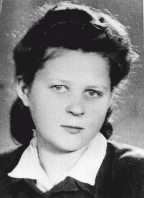
-
Josef Malnik
ID CardRaised in a Jewish family, Josef lived with his wife, Feiga, in Kovno, a cosmopolitan city that was picturesquely situated at the juncture of two rivers and was known as the "Little Paris." Josef was a barber, his wife was a beautician, and together they ran a shop in downtown Kovno. 1933-39: Every day Josef and Feiga walk to their shop which is not far from their house. It's hard work being a barber--Josef is on his feet most of the day, seven days a week including a couple of hours on Sunday. He has…
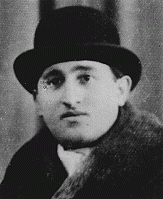
-
Margot Heumann
ID CardThe older of two girls, Margot was born to Jewish parents living in a village close to the Belgian border. The Heumanns lived above their general store. Across the street lived Margot's grandfather, who kept horses and cows in his large barn. When Margot was 4, her family moved to the city of Lippstadt. As a young girl, she learned to swim in the Lippe River, which flowed behind their garden. 1933-39: When Margot was 9, her family moved to the nearby city of Bielefeld, where she was enrolled in public…
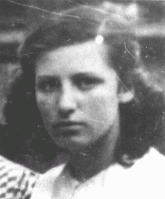
-
Sabina Low (Green)
ID CardSabina was one of four children born to a Jewish family in the Polish town of Ulanow. Her father was a landowner and cattle merchant in the area. The Jewish community in Ulanow was active, with many of its own organizations and a large library. Sabina attended public school in the morning and a private Jewish school in the afternoon. 1933-39: The public school was open Saturdays, but since it was the Jewish Sabbath, Sabina and her siblings didn't attend. They'd ask their Christian classmates for the…
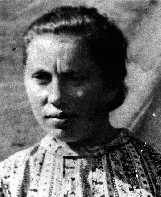
-
Edek Blonder
ID CardThe Blonder family lived in a two-room apartment in the back of a store. Edek was the third of eight children. His father eked out a meager living by tutoring students in Jewish subjects, and beginning in 1930 he worked distributing food vouchers to the poor. 1933-39: After graduating from secondary school, Edek was invited to play soccer professionally on the local Club Maccabi team, which was part of a Jewish soccer league. Club Maccabi arranged for him to attend trade school to learn cabinet making at…
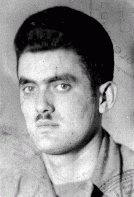
-
Jules Izrael Zajdenweber
ID CardJules grew up in a Jewish family in the industrial city of Radom, which had a large Jewish population and was known for its armaments industry. The Zajdenwebers spoke Polish and Yiddish at home. Jules' father was a textile salesman and his mother was a corset maker. Jules, whose nickname was Ulek, attended public schools in Radom and was a member of a Zionist youth organization. 1933-39: Jews weren't safe in certain neighborhoods. Some classmates at Jules's Polish state secondary school belonged to…
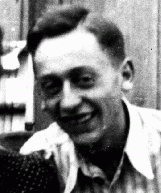
-
Sandor Alexander Bokshorn
ID CardSandor grew up in Budapest where his father was a furrier. Sandor attended a Jewish school until he was 14 and then entered a business school run by the chamber of commerce. After he graduated in 1929, he entered his father's business. Sandor then spent a year studying at the Sorbonne in Paris before entering university in Budapest to study economics. 1933-39: As a Jew, Sandor was in the minority at the university because anti-Jewish laws enacted in the 1920s had set quotas that limited Jewish applicants.…
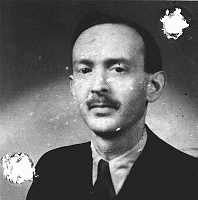
-
Frieda Altman Felman
ID CardFrieda grew up in a crowded one-room house in Sokolow Podlaski, a small manufacturing center in central Poland. Frieda's father had died when she was two years old, and her mother had then moved back to her hometown of Sokolow Podlaski, where she opened a poultry shop. The Altmans were a Yiddish-speaking, religious Jewish family, and Frieda was the youngest of four children. 1933-39: German troops entered Frieda's town on September 20, 1939. She was huddling, frightened, with family and friends in a…
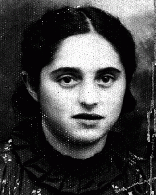
-
Charles (Karel) Bruml
ID CardCharles was born to a Jewish family in Prague, the capital of Czechoslovakia. His father owned several shoe factories there. Prague's Jewish minority enjoyed a great deal of cultural freedom because of the new democratic Republic. Though antisemitism still existed in Czechoslovakia, Prague was a relatively tolerant city. 1933-39: Charles' father's business thrived in Prague, and they lived well. Charles enjoyed painting as a child and decided to study at an art school in the city. On the morning of March…
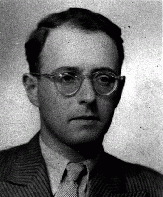
-
Fryda Litwak
ID CardFryda was one of five children born to religious Jewish parents in the industrial city of Lvov. She grew up in the same building as her paternal grandparents. Fryda attended public and private schools in Lvov, and grew up in a non-Jewish neighborhood, speaking Polish, German and Yiddish. 1933-39: When Fryda finished secondary school, she could not go to the university like her older siblings because Polish universities had instituted discriminatory quotas for Jews. In September 1939 the Germans invaded…
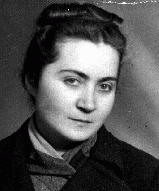
-
Welwel Wainkranc
ID CardThe third of five brothers, Welwel was born to Jewish parents who lived 35 miles east of Warsaw in the small predominantly Jewish town of Kaluszyn. His father was a cattle merchant who purchased cows and sold the meat to butchers in the Warsaw region. Welwel spent most of his free time with a group of Jewish friends who lived in his neighborhood and who attended the same public school. 1933-39: Every summer evening Welwel, Abram Kisielnicki, and some other pals, like to stroll along Kaluszyn's main…
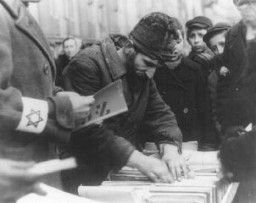
-
Thomas Elek
ID CardThomas was born to a Jewish family who moved to Paris when he was 6. His father's outspoken criticism of the fascist government and his affiliation with the Hungarian Communist Party led to the family's expulsion from Hungary in 1930. With the help of his father, a professor of modern languages, Thomas quickly learned French and excelled in school. He had a special interest in poetry and music. 1933-39: Thomas's father often argued against fascism, and he was greatly disturbed when Hitler became the…
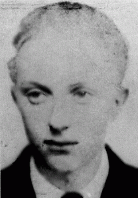
-
Chaim David Jegher
ID CardDavid was one of six children born to religious Jewish parents in Rona de Jos, a town in northwest Romania. The Jeghers subsisted through a variety of enterprises. Besides farming, they bottled their own wine and brandy and produced dried fruit for distribution in Romania and in parts of Czechoslovakia and Hungary. David's father also ran a local transportation and delivery service. 1933-39: Religious school was from 6:30 to 8:00 a.m. David's mother would wait outside the building with some breakfast for…
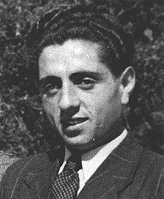
-
Ruth Gabriele Silten
ID CardGabriele was the only child of Jewish parents living in the German capital of Berlin. Her grandfather owned a pharmacy and a pharmaceuticals factory, where Gabriele's father also made his living. 1933-39: In 1938 the Nazis forced Ruth's grandfather to sell his factory and pharmacy for very little money to an "Aryan" German. After that, her father decided they should move to Amsterdam where it was safer for Jews. She was 5 years old and wanted to stay in Berlin. She didn't understand why she had to leave…
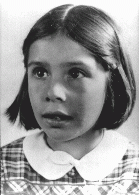
-
Fritz Silten
ID CardFritz was the youngest of two sons born to a Jewish family in the German capital of Berlin. In the late 1920s he earned a doctorate in chemistry and pharmacy. In 1931 he married Ilse Teppich, and in 1933 the couple had a daughter, Gabriele. 1933-39: Fritz worked in his father's pharmacy until 1938, when the Nazis forced them to sell the business for a fraction of its value to an "Aryan" German [Aryanization]. Leaving his parents behind was agonizing, but concern for the safety of his wife and daughter…
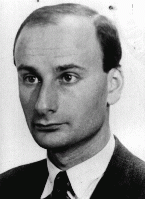
-
Ilse Silten
ID CardIlse, born Ilse Teppich, was the eldest of two daughters born to a Jewish family in the German capital of Berlin. Her father owned a dry cleaning business in the city. When Ilse finished secondary school, she was sent to a finishing school in Switzerland where she studied to be a photographer. In 1931 she married Fritz Silten. 1933-39: In 1933 Ilse gave birth to the couple's only child, a daughter named Gabriele. Five years later, when Fritz's father was forced by the Nazis to sell his business for a…
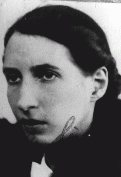
-
Ernst Silten
ID CardErnst was one of five sons born to a Jewish family in the Prussian city of Koenigsberg. He studied pharmacy and earned his doctorate in the late 1880s. Ernst spent several years as an apprentice before buying his own pharmacy in Berlin. Later, he also acquired a pharmaceuticals factory and supplied oxygen to hospitals. He married Marta Friedberg and the couple raised two sons. 1933-39: In Berlin, Ernst and his family lived in an apartment above their pharmacy and factory. In 1938 Ernst was forced to sell…
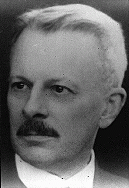
-
Ida Szczupakiewicz
ID CardIda was the oldest of three children born to a Jewish family in northeastern Poland in Malkinia, a town situated on the right bank of the Bug River. Ida's father was a grain merchant and her family lived in the same house that her grandfather had owned. 1933-39: Ida was 9 when Germany invaded Poland. At once her family hid on some nearby farms but a few weeks later they returned home. When their neighbor, her father's best friend, became a Nazi informant, her father had them each pack a small bag--they…
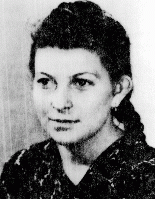
-
Pesia Szczupakiewicz
ID CardPesia, born Pesia Ander, was one of five children born to a Jewish family in the central Polish village of Nur. In 1929 Pesia married Shlomo Szczupakiewicz and they moved to his home town of Malkinia. A year later their first child, daughter Ida, was born. 1933-39: In September 1939, before the invading Germans reached Malkinia, Pesia fled with her family to the countryside. Exhausted, they returned to their house in Malkinia only a few weeks later. Shlomo then learned that a childhood friend had become a…
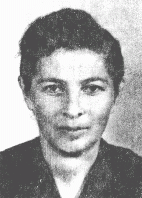
-
Marcu Butnaru
ID CardMarcu was born to Jewish parents in a small, ethnically diverse city in east central Moldavia [in Romania], a region known for its wine. He married at the age of 23, and had a son and a daughter with his wife, Anna. After World War I, Marcu followed in his father's footsteps by going into the wine making business. 1933-39: The price of wine was low due to the worldwide economic depression. Because the quality of Marcu's wine was excellent, however, it still fetched a good price. He spent much of his time…
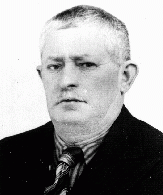
-
Ion Butnaru
ID CardIon was born to Jewish parents in a small, ethnically diverse city in east-central Moldavia [in Romania], a region known for its wine. Husi had a sizable and active Jewish population, which organized literary and artistic festivals and ran a local library. Ion's father was a wine maker and his side of the family had owned vineyards for at least three generations. 1933-39: Ion enjoyed helping his father in the family vineyards. He also did volunteer work at his local Jewish library. When he was 17, his…
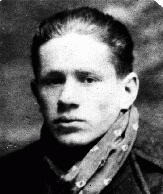
-
Sally Izikowitz
ID CardSally was an only son born to Jewish parents in the Baltic port of Liepaja. When Sally was a child, his family moved to Aizpute, a small town 25 miles northeast of Liepaja. There his parents, along with a partner, opened a dry-goods store. Sally attended a German-language private Jewish school in Aizpute. 1933-39: The Izikowitz's store was well-known in the city. People purchased fabric there to be made into clothes or furniture coverings. In 1939 Sally graduated secondary school. Germany invaded Poland…
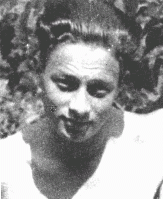
-
Dosia Szabszevicz
ID CardDosia, her older sister and parents lived on her grandfather's estate in the town of Ozorkow, eight miles from Lodz. Dosia's parents were secular Jews. They spoke both Polish and Yiddish to each other, but only Polish to their children. Dosia's father worked as an accountant, and her mother was active in organizing charity events for several of Ozorkow's Jewish organizations. 1933-39: A few days after Germany invaded Poland in 1939, Dosia saw the Polish army retreat through Ozorkow, carrying their wounded…
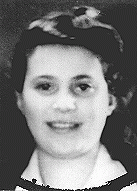
-
Arlette Waldmann
ID CardArlette's Russian-Jewish mother and Romanian-Jewish father had studied medicine together in Paris. After finishing medical school, they married and decided to set up practice in Broncourt, a farming village of 300 inhabitants in northern France. 1933-39: Arlette's father was an old-fashioned doctor who made housecalls, by bicycle at first, then on a motorcycle, and finally, in a car. His patients looked forward to seeing him and held him in high esteem, always offering him coffee and schnapps. Even after…
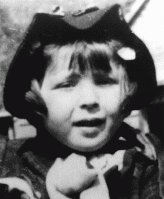
-
Shaul Himmelfarb
ID CardOne of nine children, Shaul was raised in a Yiddish-speaking, religious Jewish family in Koprzewnica, a small town in southern Poland. He married his teenage sweetheart, Alta Koppff, and opened a grocery store in the front of his mother-in-law's house. The couple had three children. The store's busiest day was Thursday, when farmers and villagers would come to town for market day. 1933-39: On September 1, 1939, Germany invaded Poland. Soon after, German troops entered Koprzewnica. While fighting between…
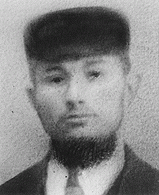
-
Alta Koppff Himmelfarb
ID CardThe daughter of a rabbi, Alta was one of six children raised in a Yiddish-speaking Jewish family in the town of Koprzewnica [in Poland]. Alta was one of the prettiest girls in town, and when she was 19 she married Shaul Himmelfarb, a childhood friend. Shaul opened a grocery store, and Alta ran the store on market days when Shaul was away buying merchandise. The couple had three children. 1933-39: On September 1, 1939, Germany invaded Poland. Soon after, German troops entered Koprzewnica. While fighting…
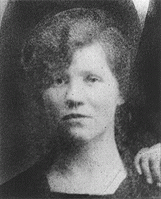
-
Leon Kusmirek
ID CardLeon was the oldest of two boys born to a Jewish family in Zgierz, a central Polish town in the heart of Poland's textile producing region. The family lived at 15 Konstantynowska Street. Leon's father worked at a textile factory. At age 7, Leon began attending public school in the morning and religious school in the afternoon. 1933-39: On Friday, September 1, 1939, Leon's mother had just returned from the market when the family saw German planes. On Sunday they flew over again, lower, panicking the city.…
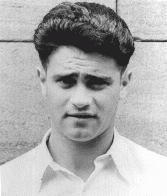
-
Wolf Himmelfarb
ID CardWolf was the eldest of three children born to Yiddish-speaking, religious Jewish parents in Koprzewnica, a small town in southern Poland. His father ran a grocery store, where his mother would help out on Thursdays. The store was located in the house of Wolf's grandmother, and Wolf, his brother, Izik, and sister, Chana, would play in a large yard in the back. 1933-39: Wolf started attending school a year late, at 8, so that he and his younger brother could share the same books. In the third grade, Jewish…
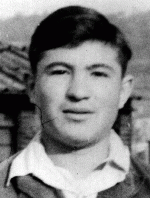
-
Frederick Fleszar
ID CardFrederick was the oldest of two sons born to Polish immigrants in Syracuse, New York. In 1922 Frederick's father, who was a musician, moved the family back to Poland where they settled in Poznan. There Frederick started public school and was accepted to the boys section of the prestigious Poznan Cathedral Choir. 1933-39: In 1933, at age 17, Frederick graduated from secondary school and enrolled in medical school at the university at Poznan. He sang with the choir for the last time the day he graduated…
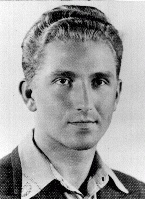
-
Josef Edelstein
ID CardJosef was one of seven children born to a Jewish family in the Czechoslovakian village of Hvozdnice. After graduating from school, Josef worked as a salesman in Vienna. In 1912 he married Ida Kohn, and the couple had a son before he left to fight for Austria in World War I. After the war, they had a daughter. 1933-39: Because of the economic depression of the 1930s, it was difficult for Josef to make a living in his wholesale shoe business. In 1938 the Germans annexed Austria [the Anschluss], and soon…
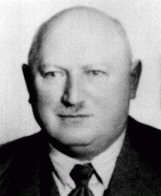
-
Leo Falkenstein
ID CardOne of three children, Leo grew up in the small town of Hochneukirch, 20 miles northwest of Cologne. As an adult, Leo entered his father's cigar manufacturing business, "Isak Falkenstein and Sons." Leo and his wife, Bertha, lived in a house next to Leo's parents. Leo and Bertha had six children whom they raised in the Jewish faith. 1933-39: Leo and Bertha's daughter Johanna has brought her two girls to live with them for a while here in Hochneukirch. Johanna's husband, Carl, has been having trouble…
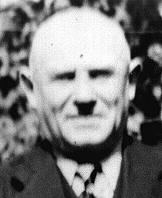
-
Bertha Falkenstein
ID CardOne of two children, Bertha grew up in the small village of Bergheim where her father was a farmer. After she married Leo Falkenstein, the couple settled in Hochneukirch, 20 miles northwest of Cologne. There her husband was employed in his father's cigar manufacturing business, "Isak Falkenstein and Sons." Bertha and Leo had six children whom they raised in the Jewish faith. 1933-39: In 1937 Bertha's daughter Johanna brought her two girls to live briefly with them in Hochneukirch. Johanna's husband, Carl,…
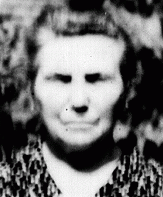
-
Isaac Sandler
ID CardIsaac was one of six children born to a Jewish family in the Ukrainian village of Vachnovka in the Soviet Union. In the mid-1920s, Isaac married, and moved to the Ukrainian capital of Kiev. 1933-39: In Kiev Isaac worked as a house-painter. Because he had married a Christian Ukrainian woman, he was shunned by some of his relatives who believed this union violated Jewish law. Isaac was considered the "black sheep" of his family. 1940-41: When Germany invaded the Soviet Union in June 1941, Isaac was…
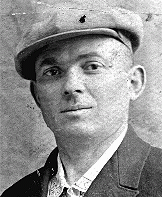
-
Robert Weinberger
ID CardRobert was raised in a German-speaking Jewish family in the Slovakian capital of Bratislava, where his father owned a dental supply business. Robert grew up bilingual: He learned Hungarian from his mother and he attended a German-language Jewish grammar school. 1933-39: When Hitler rose to power in Germany, anti-German sentiment grew in Slovakia and many Jews in Bratislava, like Robert's parents, who had originally identified with German culture, enrolled their children in Slovak schools. In March 1939…
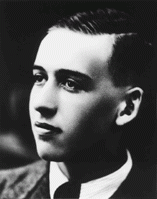
-
Jan Komski
ID CardJan was born to a Catholic family in the small Polish town of Bircza. His father, a World War I veteran, moved the family to Brzozow shortly after the war. Brzozow was a small manufacturing town in southeastern Poland. After graduating from secondary school, Jan enrolled at the Academy of Fine Arts in Cracow. 1933-39: Cracow was a beautiful old city; Jan studied its remarkable churches and synagogues in his classes. By September 1939, however, the war engulfed the beauty of Cracow. He left to escape the…
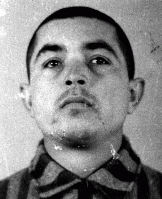
-
Helga Leeser
ID CardThe older of two sisters, Helga was raised by prosperous, non-religious Jewish parents in the small Catholic town of Duelmen in western Germany. Her family owned a linen factory. Before marrying Helga's much older father in 1927, her mother had been a Dutch citizen. As a child, Helga looked forward to vacations in the Netherlands with its comparatively relaxed atmosphere. 1933-39: At age 6 Helga began attending a Catholic elementary school. Antisemitism wasn't a problem until the night of November 9, 1938…
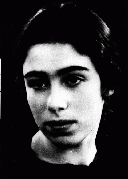
-
Erzsebet Markovics Katz
ID CardErzsebet was born to Jewish parents living in a town on the Bodrog River in northeastern Hungary. Sarospatak was a picturesque town with a ruined medieval fortress, the Windischgratz castle, and many wineries, flour mills, and brickworks. Erzsebet's father was a locksmith and sheet-metal worker. 1933-39: Erzsebet has married Jozsef Katz. It was a lovely, formal wedding. Jozsef comes from a large Jewish family. He's a joiner by trade and was working in Sarospatak when they met. Now they have moved here to…
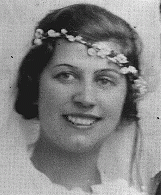
-
Max Liebster
ID CardMax was one of three children born to a Jewish family living in a small town in the Hessian part of Germany. His father was originally from Poland. After eight years of public education, Max completed three years of business school and learned to become a window decorator. In 1929 he found work in Viernheim, a village near Mannheim. 1933-39: Max worked for a clothing store where he was in charge of window dressing. Except for the weekends when there were Nazi marches, life was quiet in Viernheim. Right…
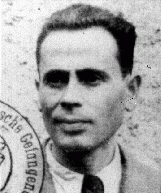
-
Settchen Oppenheimer
ID CardSettchen was one of three children born to a religious Jewish family in a small town in the German state of Hessen. Her father was a cantor and kosher butcher. Settchen completed grade school during the 1880s. Because of a digestive disease, Settchen was largely homebound. She never married, and lived with her younger sister and brother-in-law. 1933-39: Reichenbach was a quiet town. Its largely Protestant inhabitants were generally not antisemitic. After Hitler came to power in 1933, the Nazis staged…
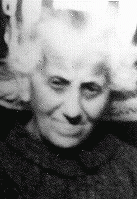
-
Moses Rechnitz
ID CardThe younger of two children, Moses was born to Jewish parents living in the southwestern Polish town of Bedzin. When he was 7, his family moved to the nearby city of Katowice where his father had a wholesale leather business. The Rechnitzes lived in a three-bedroom, upper-floor apartment on Jordana Street. Moses attended a Polish elementary school and also received religious instruction. 1933-39: In secondary school, Moses was one of the only Jewish pupils. He first encountered antisemitism when a teacher…
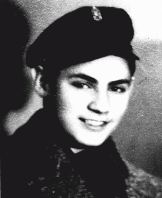
-
Sarah Rivka Felman
ID CardOne of seven children, Sarah was raised in a Yiddish-speaking, religious Jewish home in Sokolow Podlaski, a manufacturing town in central Poland with a large Jewish population of some 5,000. Sarah's parents ran a grain business. In 1930, Sarah began attending public elementary school in Sokolow Podlaski. 1933-39: After graduating from middle school in 1937 at the age of 14, Sarah helped out her now widowed mother in the family's grain business. Two years later, Germany attacked Poland. German aircraft…
